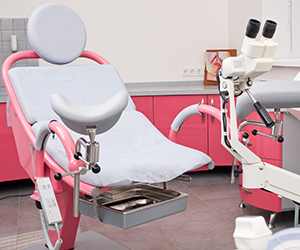Latest News Archive
Please select Category, Year, and then Month to display items
22 September 2021
|
Story Michelle Nöthling
|
Photo Supplied
 Annemarie Le Roux.
Annemarie Le Roux.
“I love working with children.” This is one of the first things Annemarie le Roux mentions when asked to describe herself. This love for children propelled Annemarie into the field of education and she graduated in 2006 with a BEd in Foundation Phase at the UFS. Annemarie immediately immersed herself in the Deaf community, enriching the lives of children at the Thiboloha School for the Deaf in Qwaqwa and the De la Bat School for the Deaf in Worcester.
The academic world enticed Annemarie back to the University of the Free State (UFS) and she was appointed as a junior lecturer in the Department of South African Sign Language (SASL) and Deaf Studies in 2013. Going from strength to strength, Annemarie completed her master’s degree in SASL in 2019, and published an
article earlier this year that she co-wrote with Marga Stander. In this article, they found that SASL “has become an increasingly popular language that hearing university students want to learn as a second language” and subsequently explored different teaching methods used for this emerging group of interested students.
Although now firmly established in academia, Annemarie is still committed to the practical application of SASL. “I am closely involved in student and community engagement through the
SIGNALS Sign Language student association that helps empower the Deaf community and South African Sign Language.” She also interprets for the Deaf community whenever she gets an opportunity, as well as for Deaf students in class and meetings.
On the importance of Sign Language and the recognition of the Deaf community in South Africa, Annemarie believes it will open greater opportunities for development. “More people will be able to learn SASL, and it might even become a subject in school for hearing children.”
Care centre goes high-tech to help sexual abuse victims
2016-11-25

The colposcope, donated by the Discovery Fund,
will be used during gynaecological examinations
to detect any irregularities.
Photo: Supplied
Rape is one of South Africa’s most pressing social problems. Rape levels in the country are often discussed and reported on, but it does not deter perpetrators from this behaviour. According to Africa Check, of the more than 42 000 rape cases reported in 2015, 15 790 were child rape cases.
In an effort to assist victims of sexual assault and rape, the University of the Free State (UFS) Department of Family Medicine adopted the Tshepong Thuthuzela Care Centre, under the leadership of UFS lecturer Dr Mariaan Kotze.
The Discovery Fund donated a colposcope to Tshepong Thuthuzela Care Centre, an instrument that works with the help of a bright light and which is used to examine victims of abuse. It has also become a standard of good practice in the assessment of child abuse worldwide. According to Dr Kotze, the new instrument will also be used for training health practitioners by rendering clinical forensic services to abuse victims.
Managing complex issues
The care centre works with between 80 and 120 victims of rape each month, a third of whom are children under 14 years of age. According to Dr Kotze, the management of child sexual abuse victims is more complex than with adults; as there is a higher chance of missing or over-diagnosing abnormalities. Also, she says, the examination process is often observed by a group of healthcare practitioners, an experience which is often intrusive and intimidating for the child. With the colposcope, the timeframe of the examination is shortened, and can be captured and viewed in real time, without the victim being present.
Best care for victims
The colposcope is a magnifier and light source used during gynaecological examinations. It is instrumental in providing the best care to victims of sexual abuse, and helps diagnose and assist in the treatment of cases of abuse. Its ability to capture and review images at the time of examination allows for retrospective research, and improves the ability of expert witnesses in court cases.